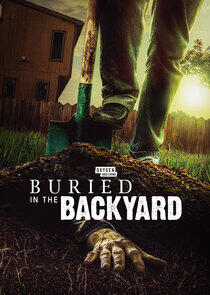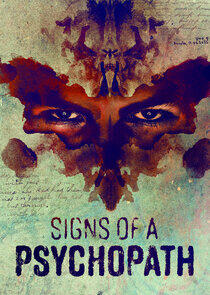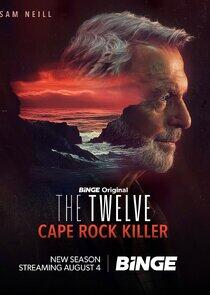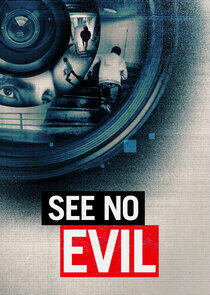Pop Goes Northern Ireland - Season 4

Season 4

Episodes

1970
Return of the show that blends archive with the thumping hits of the time.
1970 - the "honeymoon period" the army enjoyed with the Catholic community begins to sour as sectarian tensions rise.

1973
This episode of Pop Goes Northern Ireland focuses on 1973. Northern Ireland is suffering unrelenting violence and the UDA becomes increasingly involved in sectarian murder. The UDA is also convulsed by internal feuds which result in the murder of one its most prominent spokesmen, Tommy Herron. Meanwhile, having held a border poll - boycotted by nationalists - the government's White Paper proposes elections to an Assembly, the creation of a power-sharing executive and the establishment of North-South institutions. The Unionist party splits on whether to support the White Paper, but its leader Brain Faulkner, despite eroding support, agrees to a power-sharing executive and to a North-South Council of Ireland at Sunningdale. The year ends with the swearing in of the new power-sharing government for Northern Ireland.

1976
This week Pop Goes Northern Ireland focuses on 1976. This is one of the worst years of violence during the Troubles, and the year starts with a litany of sectarian assassinations, most notably the Kingsmill Massacre. In a final effort to seek agreement on a government for Northern Ireland the government recalls the Constitutional Convention, but it fails to reach any agreement. The government moves toward a policy of 'Ulsterisation', putting the RUC and the UDR increasingly in the frontline and reducing the role of the army. In August, one incident involving the killing of the three Maguire children sparks mass protests against violence and the creation of the peace people. However, the initial euphoria that the movement will bring peace to Northern Ireland soon evaporates.

1984
This week Pop Goes Northern Ireland focuses on 1984. The violence continues across Northern Ireland and March sees the attempted murder of Sinn Fein leader Gerry Adams, who is shot by the UDA. May brings the publication of the New Ireland Forum report, which advocates a United Ireland but also suggests a federal Ireland, or joint authority, over Northern Ireland by the Irish and British governments.

1987
This week Pop Goes Northern Ireland focuses on 1987. Unionists continue their campaign against the Anglo-Irish Agreement, launching a petition demanding a NI referendum. A feud breaks out between the INLA and breakaway faction the IPLO, which costs the lives of 13 people. The funerals of IRA men are marked by confrontation between mourners and the RUC, who are trying to prevent paramilitary displays. Lord Justice Gibson is the victim of an IRA bomb attack and eight IRA men are killed by the SAS during an attack on Loughgall RUC station.

1990
This week Pop Goes Northern Ireland focuses on 1990. The year starts with secretary of state for NI Peter Brooke calling for all-party talks. The Stevens Inquiry's offices are destroyed by fire and the Stevens team continues with its work uncovering collusion between the security forces and loyalist paramilitaries.

1992
This episode focuses on 1992. The year starts badly when an IRA bomb kills seven protestant builders at Teebane crossroads. In the following month an off-duty RUC officer shoots three people dead at a Sinn Fein office before killing himself. Two days later the UDA kill five people at a betting office on the Ormeau Road.

1995
This episode focuses on 1995. The IRA and Loyalist ceasefires are still in place but the "peace process" is stalled over the issue of decommissioning. The government insists that the IRA must begin decommissioning its weapons before Sinn Fein can take part in all-party talks. Meanwhile, Orange parades have become a source of tension and violent confrontation on the Lower Ormeau Road and most spectacularly at Drumcree.
Recently Updated Shows

Snapped
Who are these women and what drives them to kill? Oxygen's hit true crime series, Snapped, profiles fascinating cases of women accused of murder. Did they really do it? And if they did, why? Whether the motivation is revenge against a cheating husband, the promise of a hefty insurance payoff, or putting an end to years of abuse, the reasons are as varied as the women themselves. From socialites to secretaries, female killers share one thing in common: at some point, they all snapped. Each episode of Snapped chronicles the life of a woman who has been charged with murder. These shocking but true stories turn common assumptions about crime and criminals upside down, and prove that even the most unlikely suspects can be capable of murder.

Buried in the Backyard
Buried in the Backyard examines true-crime stories of victims found buried in the most unsuspecting of places. While most people enjoy their backyard as a safe haven, others are not so lucky when they discover the horrors lurking beneath well-trimmed hedges and manicured fences. Uncovering the remains is only the beginning, however, as each hour-long episode follows a unique police investigation to identify the body, determine a cause of death and find the person responsible. Captivating recreations, along with first-hand accounts from those closest to the victims and law enforcement agents involved in the case, bring each shocking tale to life. As investigators dig into the "how" and "why" surrounding each crime, viewers are taken on an unpredictable journey and reminded that this could happen to anyone - in any home, in any neighborhood.

Signs of a Psychopath
For every sadistic psychopath...there were signs. Charm. Narcissism. Lack of empathy. Impulsiveness. Manipulation. Deception. These traits and others are the telltale Signs of a Psychopath. This harrowing half-hour archive series revisits some of the most brutal killers in modern history, reviewing news footage and the words of the killers themselves to see which terrifying traits each killer exhibited. What are the signs...of evil?

The Twelve
Twelve citizens are called for jury duty on a high-profile murder trial as traumatizing as it is controversial, in which a woman stands accused of killing her sister's child.
As time goes by, the murder trial becomes a trial, not only for the accused, but for the jury members themselves.
Behind the façade of their anonymity, these twelve ordinary people bring with them their own histories. Lives that are as complex as the trial, full of fractured dreams, shameful secrets, hope, fears, personal trauma and prejudice.
